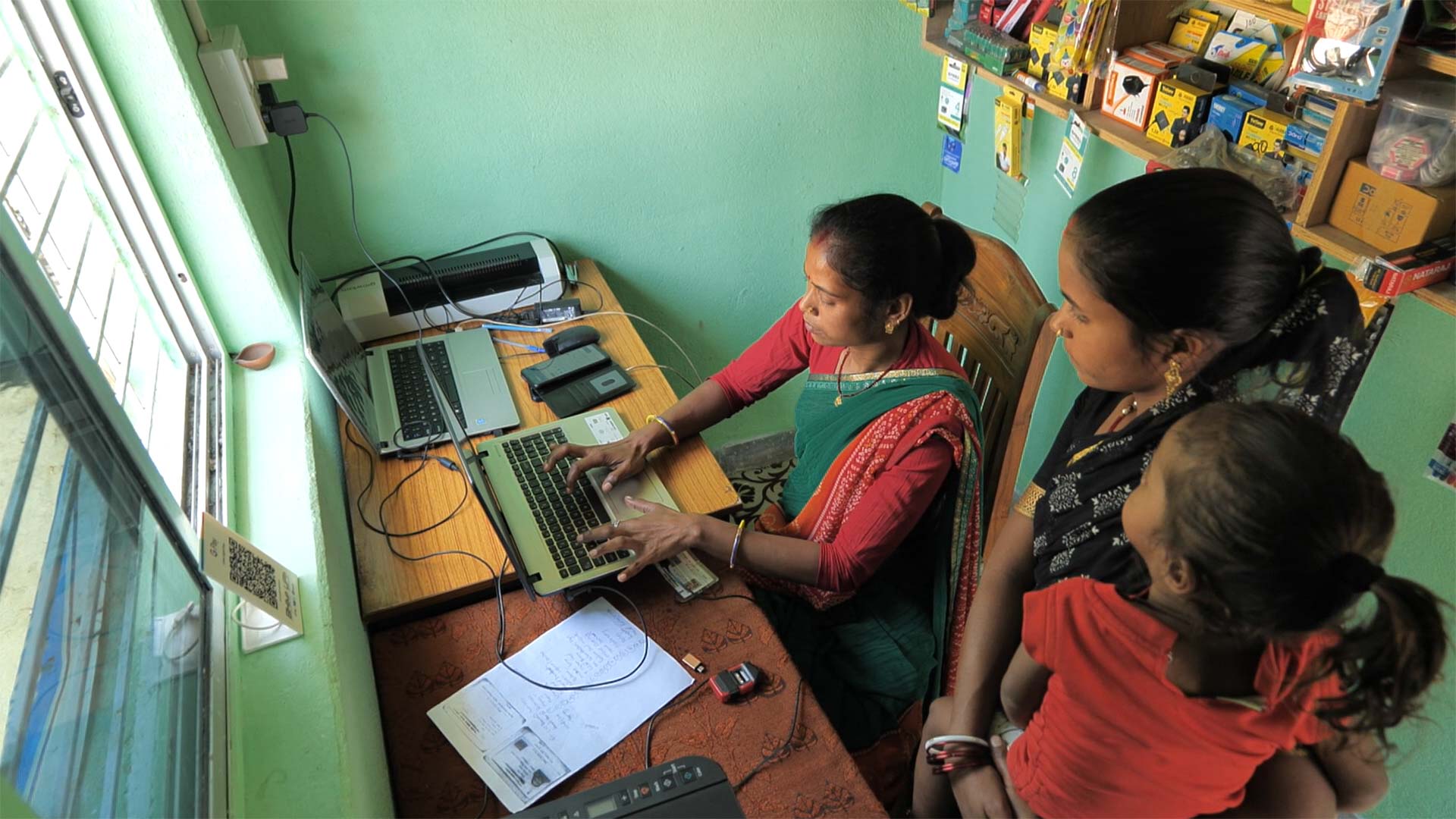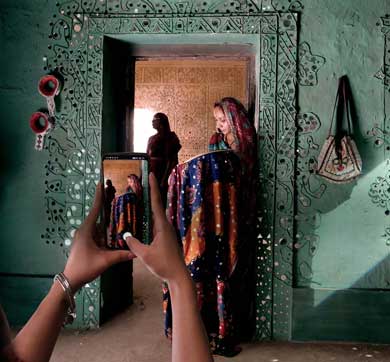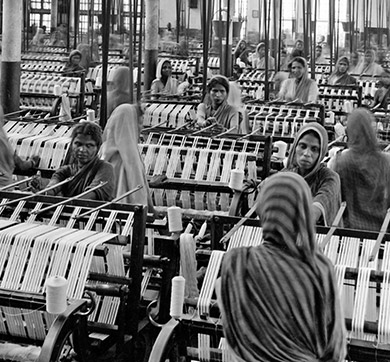August 2024 | 1682 words | 6-minute read
Like many women from her community, Shashi Kujur, from Latehar district in Jharkhand, got married at a young age. However, determined to make a mark for herself, she delayed starting a family and searched for a way to channel her ambition. In 2020, she heard about Tata Consultancy Services’ (TCS) BridgeIT programme and immediately enrolled.
Through TCS BridgeIT, Ms Kujur gained the essential technical and entrepreneurial management skills needed to start her own business. Armed with a laptop, she set up a digital service hub in her own home. Today, Ms Kujur offers 24 services, including assistance in citizen entitlements, banking services, and financial inclusion. Buoyed by her success, she contested for and was elected as the village leader. “I started with apprehensions, but with determination I became the Digital Mukhiya of my village,” says Ms Kujur. “I am proud to empower women, bring change, and make an impact through entrepreneurship.”
A similar story unfolded in Odisha’s Rayagadha district with Bapi Raita, a 27-year-old Saura tribal. Working multiple odd jobs from the time he was in school, Mr Raita earned just enough to pay for a diploma course in civil engineering. However, he had a hard time finding a job even after graduating and resorted to working in construction and garment manufacturing. He chanced upon BridgeIT through a local NGO and enrolled in the free programme. The training and mentoring that Mr Raita received helped him set up a digital business, which grew his monthly income from Rs 4,000 to over Rs 1,00,000. Today, he is the BridgeIT Cluster Lead for his region and mentors entrepreneurs from neighbouring villages.
The success of 466 entrepreneurs, like Ms Kujur and Mr Raita, is a testament to the transformative power of BridgeIT, which turns 10 this year.
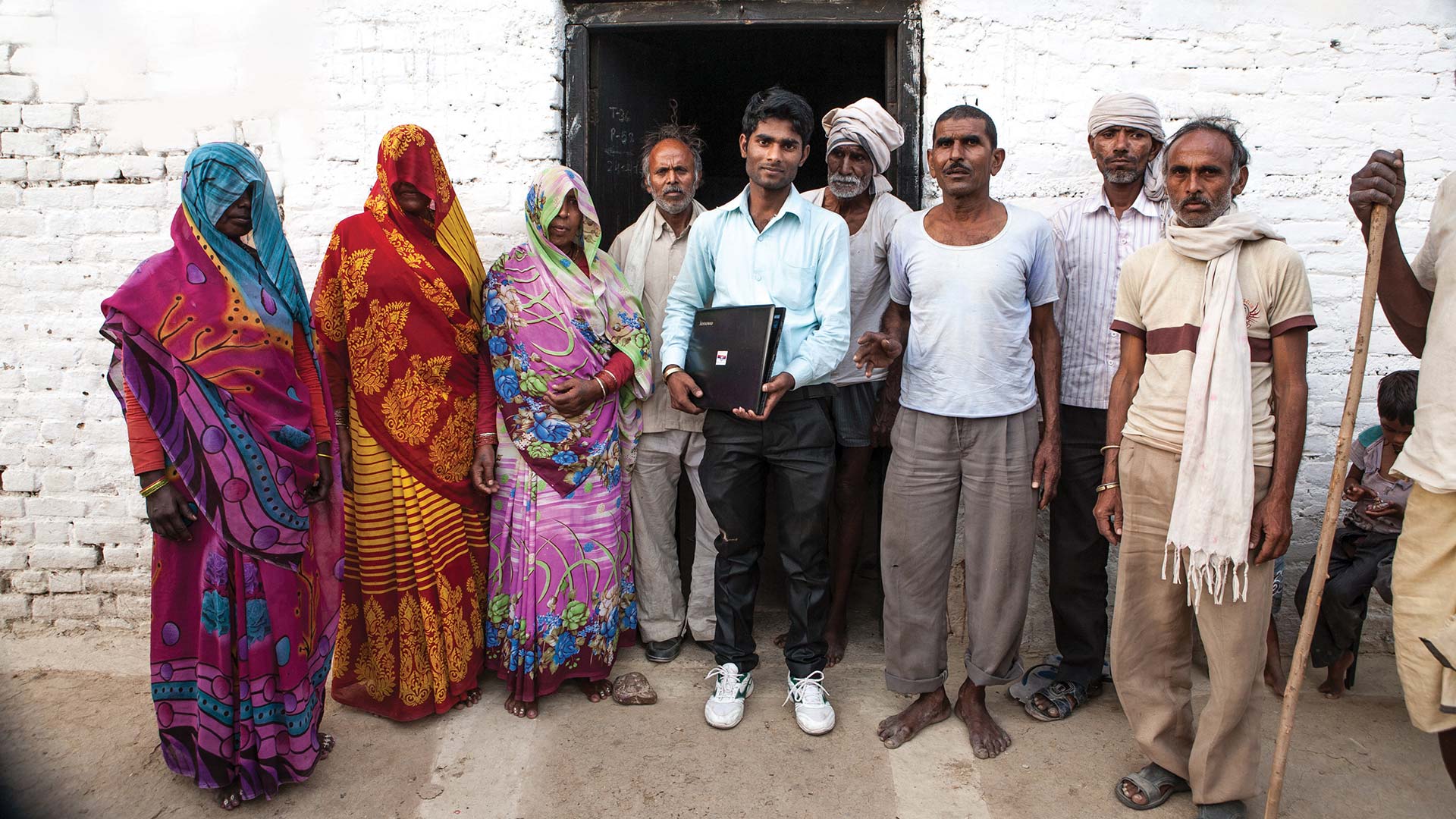
Bridging the divide
The BridgeIT programme drew upon the principles of the Tata Affirmative Action Programme, which focuses on 4Es — education, employability, employment and entrepreneurship. Starting small in 2014 in Jhansi district, Uttar Pradesh, with six entrepreneurs, three men and three women, BridgeIT has so far touched the lives of 3,12,000 people from 1,735 villages in 30 districts across 10 states.
BridgeIT equips youth from socially and economically disadvantaged communities in rural India with digital, communication and business skills needed to become entrepreneurs and digital service providers. Educational qualifications, particularly matriculation or graduation, are an advantage, though not always mandatory.
“We realised that, while focusing on creating digital entrepreneurs who can become self-sufficient, we should also address the last mile gap that exists in rural India, in terms of accessing social welfare schemes that the government provides.”—Balaji Ganapathy, Chief Social Responsibility Officer, TCS
“We are connecting youth with the opportunity to be catalysts in their communities, building on their foundational knowledge,” says Balaji Ganapathy, Chief Social Responsibility Officer, TCS. The pedagogy, developed with experts in academia and the social sector, includes lessons in using computers and software, how to start and run a business, maintaining, and growing a customer base, managing finances, etc. The novice entrepreneurs also receive financial assistance, tools like computers, resources and mentoring to aid them. In time, the entrepreneurs become pivotal in rural life, as villagers no longer have to travel long distances to get basic digital services (public and private).
“We realised that, while focusing on creating digital entrepreneurs who can become self-sufficient, we should also address the last mile gap that exists in rural India, in terms of accessing social welfare schemes that the government provides,” says Mr Ganapathy.
Through the services they provide, these entrepreneurs bridge the gap between access and opportunities in rural, underserved areas across India. While government schemes promoting financial inclusion exist, there is a lack of awareness and accessibility. “One of the most important services is the provision of citizen entitlements like Aadhaar, enrolment in the Public Distribution System, etc,” says Mr Ganapathy. “Many people don’t know how to operate bank accounts or link their Aadhaar and miss out on direct benefit transfer schemes intended to serve them.”
Equipped with a Common Service Centre (CSC) license from the government, many BridgeIT entrepreneurs set up common service points, often from within their own homes. They offer financial and digital services, like government scheme enrolment, online form filling, document generation, banking transactions, exam registrations, etc, thereby enabling social integration, while also enhancing their income.
Steady growth
Early signs of success showed that the programme could make a compelling difference in other geographical regions too. BridgeIT started a second cohort in 2015 and extended the programme to 24 entrepreneurs, expanding within Uttar Pradesh, and to Karnataka and Madhya Pradesh.
“The lessons gleaned from working with the second cohort gave us confidence that the model of using digital entrepreneurship to create self-employment opportunities for youth was something that had resonance and was creating positive results,” says Mr Ganapathy. So, in 2016, BridgeIT was expanded to Bihar, Odisha and West Bengal, and two years later, to Mizoram and Rajasthan.
The next growth spurt was in 2020 during the pandemic. Far from being inhibited by the challenges thrown up, TCS thought up creative solutions to further expand the programme. “This was around the time when the Chairman’s book, Bridgital Nation: Solving Technology’s People Problem, had been released,” says Mr Ganapathy. “It bolstered our confidence to build bridges for essential services by drawing upon the abundance of aspirational youth across rural India.”
In 2020, BridgeIT introduced its first 32-member, all-women cohort in two districts in Jharkhand, plus 219 entrepreneurs across states. By this time, the first cohort had firmly established their businesses and become key stakeholders in local self-governance bodies. Entrepreneurs like Lakshmi Kumari from Bharatpur in Rajasthan, were instrumental in life-saving and life-changing efforts during the pandemic, like helping with online documentation so villagers could avail the various Covid-19 relief subsidies and welfare measures. “I tried to ensure that everyone received the government supplies as per their entitlement,” says Ms Kumari.
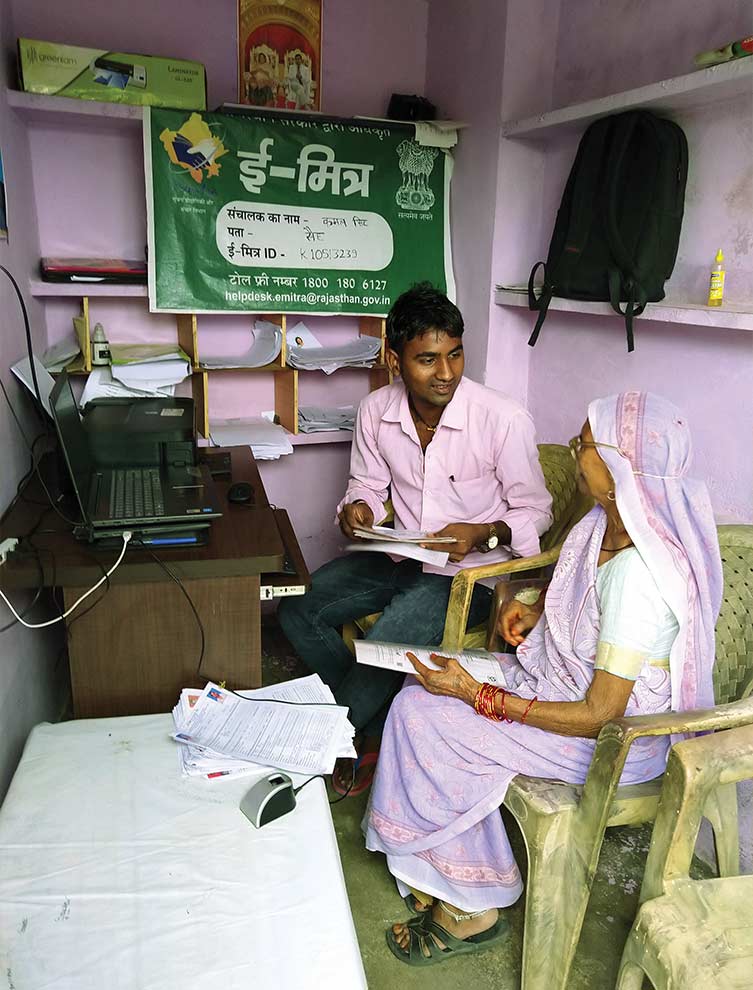
Building communities
BridgeIT has partnered with NGOs, such as Development Focus, Humana People to People India and Centre for Alternative Dalit Media (CADAM)
to implement the programme. Together, they conduct training sessions, support entrepreneurs, celebrate milestones and engage with other stakeholders, like the government and other social institutions. To start with, the team identifies districts and blocks with the highest multidimensional poverty that can benefit from a digital ecosystem. Within these blocks, they select villages clustered together, so that an entrepreneur can service the needs of 800-1,000 households.
“A village alone cannot enable an entrepreneur’s journey towards self-sufficiency,” says Mr Ganapathy. “But a cluster of villages can give them an income higher than what they might earn as daily wage labourers or through agricultural activity. It enables them to leverage existing structures and systems to progressively earn a steady income at par with the national per capita income for the family. This model of self-employment can empower the entrepreneur and transform the face of rural India.”
In collaboration with the NGOs, BridgeIT forms a Livelihood Committee for each cluster. The committee includes panchayat members, accredited social health activist (ASHA) workers, anganwadi workers, SHG village organisations, and village elders who help identify and select participants for the programme as well as nurture the ecosystem. For instance, the committee counsels families to help them understand the opportunity that their child is getting and the potential for betterment. Such support gives women entrepreneurs, especially, the social sanction to work outside the home. BridgeIT then creates access to knowledge, capital, mentors, markets and digital infrastructure.
Ripples of change
In recent times, BridgeIT has successfully helped entrepreneurs achieve financial self-sufficiency within three years, as opposed to the five years needed by the initial cohorts. Some entrepreneurs achieve these desired results within the first 18 months itself. While the 2014 cohort earned Rs 5,000 per month after three years, the 2020 cohort started earning Rs 10,000 per month in the very first year. In fact, BridgeIT’s women entrepreneurs have had a 60% increase in earnings compared to other rural female self-employed workers. A key reason for this overall uptick has been the scaling up of digital services, enabling the village ecosystem to flourish.
Entrepreneurs have broadened their offerings to include services like insurance, telehealth, telelaw, e-commerce, digital commerce, logistics, and more. Some choose to sell stationery, farm supplies, etc to increase footfalls. Trained to recognise market opportunities, entrepreneurs identify the services their communities need and take charge of scripting their own growth stories.
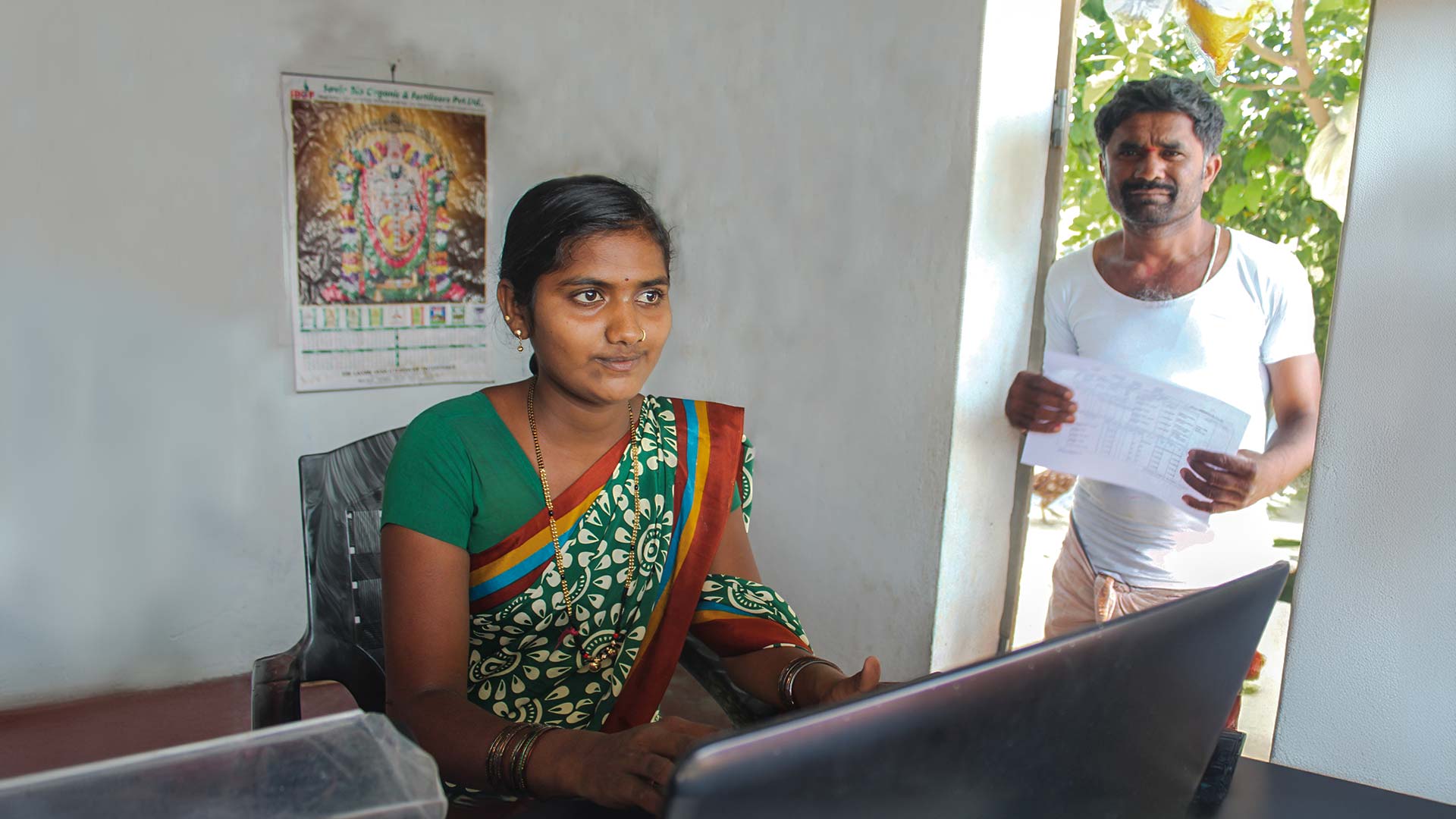
Also contributing to the increase in earnings is the TCS Entrepreneur Network (TEN). Created in 2023, TEN encourages knowledge sharing and revenue generation ideas among existing and future entrepreneurs. It offers training modules on topics like cyber security, cybercrime, desktop publishing and Canva. The BridgeIT team has also developed an in-house guidebook, Knowledge & Information Toolkit for Aspirational BridgeIT Entrepreneur, on new ways to generate income and created the Digital Entrepreneur Learning Intervention (DELI), an in-house training curriculum that also has content for future training programmes.
The road ahead
According to a survey by the Centre for Monitoring Indian Economy, the rural unemployment rate in April 2024 was 7.8%. On the other hand, according to data compiled by the Reserve Bank of India, rural male agricultural workers earned an average of Rs 345.70 daily in FY23. Given that over 60% of India resides in her villages, the potential for BridgeIT to transform the lives of rural youth is enormous.
Since its inception, BridgeIT has enabled 466 entrepreneurs, of which 46% are women and 100% hail from marginalised backgrounds. This year, the programme has expanded, with an all-women cohort of 1,400 entrepreneurs in 14 additional districts in Bihar, Jharkhand and Rajasthan.
—Cynthia Rodrigues


